12 – 15 yo
Are you too young to vote? Don’t worry, we’ve got you covered. In this article, we prove that there are at least 16 things you can do to deserve the title of an “active citizen” regardless of your young age.

There is a perception among many that active citizenship is equal to voting during elections. However, every now and then, traditional and online media convey interesting grassroots initiatives: a group of friends in Brussels started helping poor and sick elderly they knew, and in Warsaw, the neighbours began to clean the neglected areas in the vicinity of their houses on their own. Are these expressions of active citizenship? The answer is simple: yes!
Active citizens are well informed, know their rights and obligations, and can express their opinions. They are involved in the life of their local community and participate in making decisions that affect them. Through diverse actions, they contribute to the improvement of the quality of life for themselves and their local community. In other words, active citizens take matters into their own hands to change the reality that surrounds them.
The active citizen concept is an integral part of SDG #16, which is about peace, justice and strong institutions. Following this numerical logic, we have compiled a list of 16 things that you can do to become an active citizen. Read through them, and who knows, maybe you will find that you’re already an active citizen without even realising it?
#1 Join your class or school council
Your class or school likely has a council which usually consists of a president, deputy, treasurer, and other members. Such a “school government” is established to solve problems related to the life of students. It happens, after all, that you need to choose a few students to represent the whole class or school in various situations. This is also a great opportunity to learn self-governance, analyse what could change in your class, and put these plans into action.
#2 Give your spare time to those in need
Volunteer work is the greatest form of help – it implies full commitment without the expectation of material compensation. Some benefits cannot be converted into money such as the smile of a person in need and their gratitude. There are also many opportunities for volunteering because many people need such support. From planting trees to helping the poor and tutoring. To find the volunteering opportunity that interests you the most, look for organisations nearby that deal with the issue that is important to you. Browse their websites, social media, write or call them to let them know you are ready to get involved. You can also act on your own. Perhaps you have elderly neighbours who have difficulties doing shopping or taking out garbage bags. By helping them, you are doing something good not only for your neighbours in need but also for your neighbourhood in general by setting a good example for others. Do not underestimate such small, individual efforts. Remember that every project, including European Footprints, started as little acts that grew over time into a bigger initiative.
#3 Open a social media channel to advocate for change
If you enjoy posting content and exchanging insights in the comment section online, advocating on social media might be what you are looking for. Make a list of the things you want and can change. Remember to measure your strength – choose things that you and your peers are able to influence. Pick one topic from the list and start a social media channel. Regularly publish your observations, photos and videos that are a positive example for your peers, and which can motivate them to act. Gather people interested in your channel, create a group, and build a joint initiative online.
Fun fact: Did you know that European Footprints has its own Ambassadors programme? It aims to support youth in promoting important topics such as sustainable nutrition and gender equality on social media. We invite you to see what our Ambassadors are doing with their pledges and get inspired by the #MakeAPledge initiative on our website.
#4 Prepare a lesson and talk to your peers
What if there is no council in your school or you have not been elected to the council? Nothing is lost. You can also promote active citizenship without being a formal part of any school organisation. Offer your teacher to prepare a lesson on civil society, self-governance, democracy, or any other relevant topic. Perhaps your teacher will even let you organise this lesson by yourself, for example during a civics or humanities class. This is a great chance to learn about important stuff and listen to what your peers think about it.
#5 Join a youth organisation
Did you know that there are organisations that bring young people together so that they can jointly pursue goals that are important to them? In many places, there are youth city and town councils, youth political unions, and regional youth clubs focused on topics such as ecology, equality, democracy, or politics. Join them or create one yourself!
#6 Set up a club
Is there something that you are good at and that has a positive impact? Then set up a club at your school or an informal group to pursue this interest within a group of friends. It can be, for example, a debate club where others suggest topics and you discuss them to find a solution or a handicraft group that uses ecological materials. You can also help others with household tasks, caring for pets or taking care of the garden. Another idea is to ride bikes to school together. The possibilities are as many as you can think of!
#7 Stay informed and think critically
An important trait of an active citizen is being well informed about your local community, region, country, and the world in general. Active citizens know their rights and obligations and are up to date. So read the newspapers, watch the news, scan through articles online. At the same time, don’t be a passive consumer of news and other data. Remember to think critically, gather information from multiple sources, check credentials and read beyond the headlines. Of course, there’s no way to personally verify every bit of information that you come across. However, if you read or watch something alarming, use a reputable fact-checker, such as Snopes, Politifact or InVID.
#8 Vote in school elections
“If you don’t vote, you can’t complain” – perhaps you have heard this saying before. Even if you are not running for the school or class council, don’t forget to vote for your candidate. Read the election programmes, talk to the candidates, discuss the candidacies with your peers and cast your vote. You choose who will represent you and what changes get to be made in your school. Regardless of whether you are running or voting, your voice will be heard.
#9 Explore your local culture
Culture is an essential element of society. By visiting museums and art galleries, following independent art initiatives and cultural organisations, you support the development of culture in your community. You can also learn about other points of perceiving reality and develop your noncognitive skills, such as creativity and critical thinking. It all helps you to better understand others and their opinions which is extremely important in building a sustainable civil society.
#10 Make conscious food choices
You get hungry and the refrigerator is empty – what will you do? You go to the store or a restaurant or order takeaway. In each of these situations, you make a choice. Try to make a conscious choice. Buy local products to support local entrepreneurs and focus on ecological products that are healthier and better for you and the planet. When choosing to eat out, think twice before going to a fast-food chain and try someplace new instead. When ordering takeaway, make sure the restaurant doesn’t deliver food in plastic containers and ask them not to provide you with disposable cutlery when you can use your cutlery at home. Remember that with every little choice you support specific enterprises and that you indirectly decide on their “to be or not to be” on your local market.
#11 Watch your ecological footprint
Have you ever thrown a piece of paper on the floor without picking it up or put a metal can in a non-recyclable bin? Or perhaps you forgot to take your shopping bag with you and had to buy a plastic bag in the store? Such things happen to everyone, and it’s not the end of the world. It is important to be aware of the consequences of your actions and to try to avoid them. But if you’ve made a mistake, there’s no point in tormenting yourself with remorse. Try to fix it instead – pick up that piece of paper next time, plant a tree and recycle your waste if you haven’t started to do so yet.
#12 Try mock elections or model simulations
This type of game combines the properties of social simulations and educational activities. It is a great tool that can introduce you to the concept of elections before you have reached your voting age. This can give you and your peers an understanding of democracy and the role of parliament and can be lots of fun at the same time. You can hold the mock election at your school or participate in already existing initiatives. The international alternatives are the Model United Nations (MUN) and the Model European Union (MEU) which both simulate the decision-making processes of these organisations. They are organised in most countries and many of them allow school students to participate.
#13 Organise a fundraiser or donations campaign
Organise a fundraiser at your school or among your friends for a charity of your choice. Through such an initiative you can contribute to an important cause and the selected organisation can use the collected resources to act on this cause. You can also start a donations campaign for your local orphanage, homeless shelter or any community in need. Many things you don’t necessarily need or use anymore can be given a second life and a new caring owner.
#14 Write for the school newspaper
If you have a knack for words, consider writing for the school newspaper about issues that are important to your school and the community. Create your own series of articles on sustainable development, student initiatives or ecology. Your school doesn’t have a newspaper? Create your own or start writing a blog.
#15 Start a petition
All you need is paper, a pen, and a printer. Whether you want to protest a school rule or suggest an item in the cafeteria, a petition will show that you are not the only one who cares. Any feasible idea you have that might improve the well-being of the students is worth a try. Start by deciding on the goal. Formulate your postulates clearly, concisely and to the point. Then simply print out copies of your petition and gather signatures. A certain signature treshold might be required by your school regulations, otherwise it’s entirely up to you. After you’ve reached the treshold, collect all of the signed petitions, hand them over to a school official, and voilà – you just submitted your first petition!
#16 Have fun with it!
You didn’t find an idea that you liked above? No worries. Each of us has different interests and prefers to be involved in different ways. Just keep in mind that there is no one-size-fits-all solution for active citizenship and there are many more ways you can get engaged. You can even learn more about the Sustainable Development Goals by playing games! For example, the United Nations has developed a board game that you can download, print and play with your friends.

Download the infographic here.


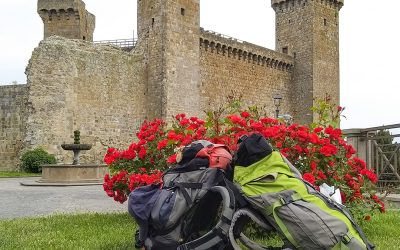

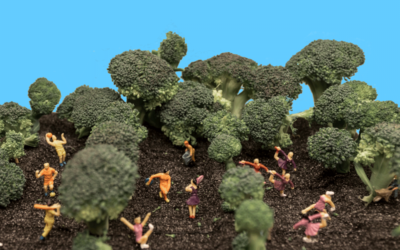
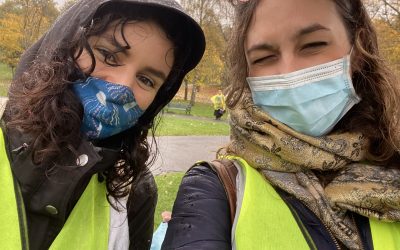


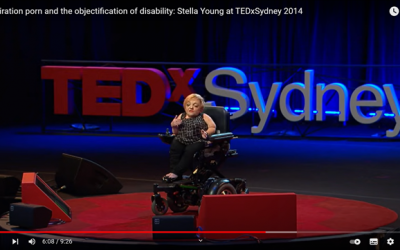

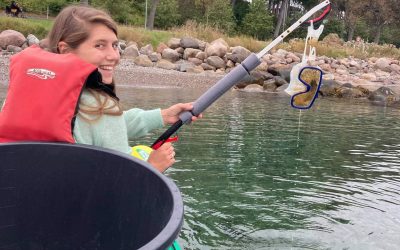

0 Comments